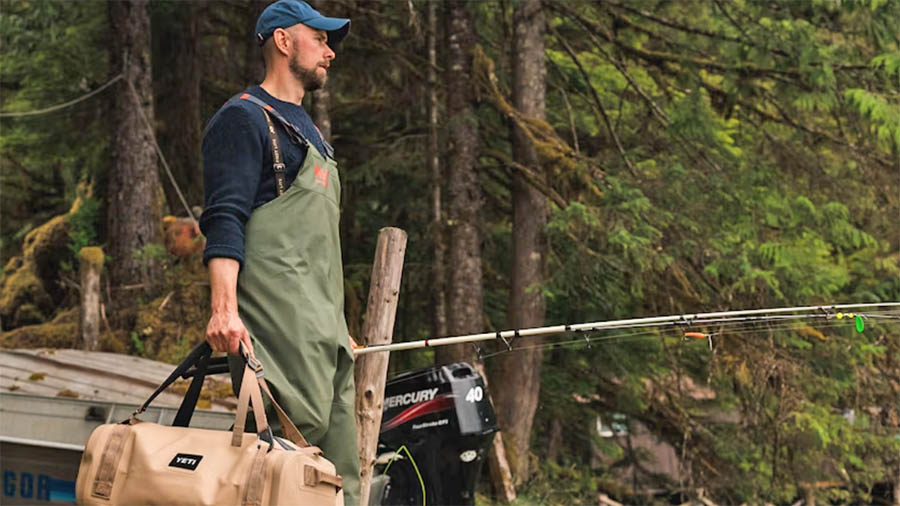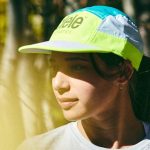SGB Executive caught up with Yeti’s new head of softgoods this week after the news of his hire and the subsequent report that the cooler and drinkware brand was getting more serious about their packs and bags business. How serious? Well, for starters, they hired a great packs and bags guy in Layne Rigney, the former Board member of Sea to Summit, CEO of Osprey Packs and president at Camelbak after earlier years at Franklin Resource Group, PowerBar and RockShox.
 The Yeti Softgoods business includes all soft-sided products, including, packs, bags and soft-sided coolers, along with the apparel and accessory business.
The Yeti Softgoods business includes all soft-sided products, including, packs, bags and soft-sided coolers, along with the apparel and accessory business.
Rigney said he officially started on January 8, 2024, and by then the deal to acquire Mystery Ranch was in process and he had it on his radar. But that wasn’t the case when first talking to Yeti about the head of softgoods opportunity.
“I had no idea about the Mystery Ranch deal when we were first talking,” Rigney told SGB. “After more conversations and Matt (Yeti President and CEO Matt Reintjes) grew more comfortable with me he offered up the prospect of the Mystery Ranch acquisition.” He said that added a bonus to an already exciting opportunity.
When asked how he is spending his time in the early goings, Rigney said he is going where he is most needed. These days that means spending most of his time in Bozeman, MT, the home of Mystery Ranch, as he does a full assessment of the business and how it will integrate with the broader Yeti softgoods business.
“This was primarily a talent acquisition,” Rigney shared. “The team in Bozeman has a wealth of talent, experience and innovation in the packs business and Yeti sees an opportunity to tap into that talent. He said that did not mean that the Bozeman crew would be moving to Austin (Yeti’s HQ) any time soon. “The Bozeman area is core to this business; the talent, the testing environment, it’s where we need to be for that business.”
When SGB suggested there was some confusion about the integration of the Mystery Ranch into Yeti following a conference call with analysts in mid-February when Reintjes provided more details about the acquisition, Rigney said there is no intention to merge the brands.
“It’s true that Yeti does not want to build a house of brands,” Rigney said. But he added that Yeti’s packs and bags business is and will be more lifestyle based while Mystery Ranch will continue to be more hardcore.
That doesn’t mean that the Austin softgoods team doesn’t plan to learn from the Bozeman team in some key areas, he said, bringing up waterproof travel bags as an example, or more load-bearing and carry packs.
Layne also said that Dana Gleason, the legendary pack designer and Mystery Ranch founder, was no longer an employee of the company but he is serving as an advisor as they continue to on-board the brand and the people.
And it sounds like Yeti has a pretty clear picture on the brand differentiation.
“Mystery Ranch is known for their carry systems,” Reintjes said on his Q4 conference call. “And what I mentioned earlier, and I believe [an earlier] question was carry and access are two hugely important things in driving differentiation in packs. And so we see with Layne’s leadership and the talent team we now have in Bozeman with the incredibly talented team we have in Austin, the ability to become not only a big player and a relevant player in outdoor broadly, but also everyday carry. And I think that’s where Mystery Ranch as a brand had made a little bit of a move there, but their legacy history was tied into those heavy hauling, heavy carry environments. And so that’s why we saw incredibly complementary and we think those technologies and those designs are leverageable and have more broad, more scalable application.”
Rigney could not share the size of the Mystery Ranch business or the actual purchase price, nor could he share the size of the current Yeti softgoods business.
From the outside, it appears Yeti has the right guy to bridge the Bozeman and Austin conversation. He has a great opportunity to help fuel additional growth at Mystery Ranch while building out the Yeti packs and bags business. However, he’s also overseeing a Yeti softgoods business that took a big hit last year with the Hopper and Sidekick recall and may need a steady hand with retailers to move the business forward.
In March 2023, Yeti announced separate, voluntary recalls of the Hopper M30 Soft Cooler, Hopper M20 Soft Backpack Cooler, and SideKick Dry gear case in collaboration with the U.S. Consumer Product Safety Commission. In the fourth quarter of 2023, the company introduced the redesigned and improved versions of the affected products and also launched two new sizes with the Hopper M15 Soft Cooler and the Hopper M12 Soft Backpack Cooler.
The brand also has a committed consumer following, and early indications are that they have a short memory as the company reported that a strong performance in the new Hopper M12 Soft Backpack Cooler and M15 Soft Cooler, cargo, and bags when discussing its Q4 results.
The company experienced lower-than-anticipated consumer recall participation rates and a further shift to gift card elections in lieu of product replacement remedies. Based on such experience and trends, Yeti again reevaluated its assumptions, which decreased the estimated recall expense reserve by $4.9 million.
The net impact of the recall reserves had a 1,740 basis point impact on the increase in gross margin in fiscal Q1 compared to the prior-year quarter.
That’s a good start.
Image courtesy Yeti
















